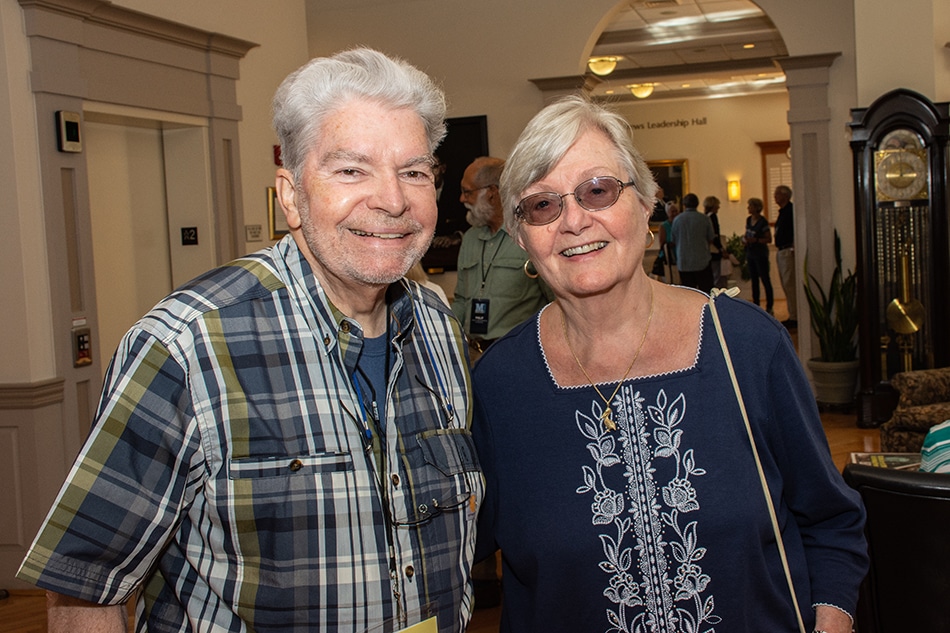Planning Ahead with Matching Funds

What a glorious feeling, I’m happy again . . .
This phrase, from the popular song “Singin’ in the Rain,” reflects the enthusiastic feelings of Norma Towne Clayton ’63 and her husband John, they recently received a thank-you letter from the first recipient of the Norma Towne Clayton Scholarship at the University of Maine.
This endowed scholarship fund provides scholarship assistance to a graduate of a Maine high school and of Lake Region High School in Naples, Maine, if possible. The endowed scholarship was originally to be funded by the Claytons upon their deaths. However, since their move to a continuous care retirement community in 2011, it became obvious to them that it might be possible that they could outlive their retirement plan savings and pensions. Although it is their hope that they “run out of breath before they run out of money,” they began to think of ways to make the scholarship a reality during their lifetimes.
With the help of Sarah McPartland-Good, who specializes in planned giving at the University of Maine Foundation, they crafted a workable plan for establishing Norma’s scholarship through a series of annual gifts to the Foundation that were affordable to them. They had further encouragement during a five-year matching gift program when the Foundation agreed to match their annual gifts. Always ready for a bargain, they made their pledge immediately!
The University of Maine Vision for Tomorrow campaign matching gift program a few years later provided a similar matching situation, so they’re working on that pledge to bolster Norma’s endowed scholarship fund. John says that this has made it possible for them to fulfill their dream for the University of Maine earlier than anticipated and that it also feels good to have made a “warm hand gift, rather than a cold hand one!” They have been personally satisfied by being able to see the results during their lifetimes.
Both Norma and John put themselves through college; Norma worked in the dining halls at the University all four years on campus and for four summers at Migis Lodge in Casco, ME. She received help through loans from a member of the South Bridgton community who had provided financial help to other young people from South Bridgton. He died during the second semester of Norma’s junior year and in his will cancelled any college loans that were outstanding at the time of his death. A couple in the community, knowing of the help provided by the deceased man, stepped forward to loan Norma what she needed to complete her Maine education. The thoughtful gesture made its philanthropic mark on Norma.
John’s story is similar in that he, too, put himself through college by working part-time at a department store’s customer service pick-up area, where he delivered items such as television sets, window air conditioners, furniture, and, lawnmowers to customers when they came to pick them up at the loading platform. He was also the baritone in a paid solo quartet of a church in center city Wilmington, DE. It can be said that he “sang himself through college!”
Norma and John, during their working years and with more disposable income, provided help for several college-age young people, asking only that the recipients provide similar help to others in college after they are established and able to provide such help. The Claytons have strong feelings about giving back to the communities and organizations that supported them when they were young. This has been important to them and they carried it one step further by both working as planned giving associates at two different universities during the last 14 years of their careers.
To talk with someone about providing for your University of Maine dream, please contact the University of Maine Foundation.
